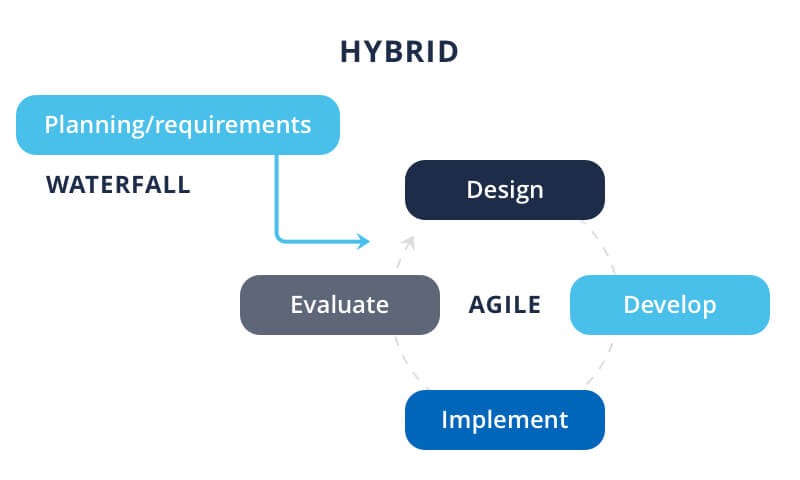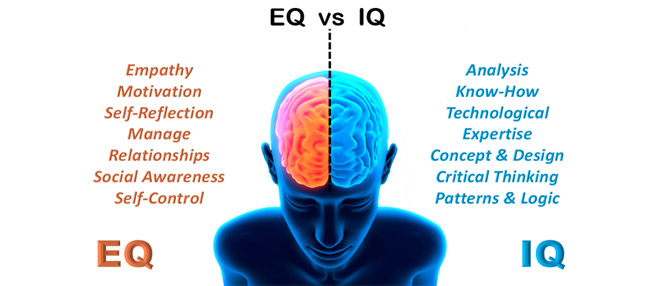5 Trends That Are Shaping Project Management Plans in 2021
Both project management plans and the industry as a whole have been going through a significant transformation over the years. How does this change impact the industry and project management professionals? Why is it crucial to be aware of such changes?
The architectural and engineering achievements along the banks of the Nile several millennia ago are probably among the first project management plans. While the achievements of the Egyptians, Romans or even Mughals are noteworthy, pioneers like Henry Gantt are the modern founding fathers of this discipline.
Since its modern genesis in the mid-20th century till now, project management has undergone a massive evolution. Some of it is due to the natural learning curve this discipline’s practitioners have developed through the years. However, it is the changes in society, the economy, the work and business environment, and technology that have played their part in shaping up project management over the decades.
Five Key Trends That Are Shaping up Project Management Plans
As you see exponential development in cutting-edge technologies and businesses transitioning into a new digital age, project management plans are undergoing tectonic shifts in 2021.
1) Hybrid Project Management Approaches
People in the industry predict the acceptance of hybrid models to be one of the new developments in the project management world. Traditionally, project management plans have followed the waterfall model for years, while the use of Agile and its methodologies has gained popularity. Lean, Six Sigma, Scrum, and Kanban are popular methodologies project managers use worldwide.

Source: Medium
The rapid pace at which project environments change has inspired project teams to seek more flexibility in their project management methodologies. Improvisations in Agile methodologies, for instance, help project managers to develop their unique version of hybrid Agile methodologies.
A hybrid of the waterfall method and Agile methodologies will see elements from both schools of thought. In a traditional project charter, updates bring in the Agile concept. Similarly, within a waterfall project schedule, introducing shorter phases and faster prototypes is again the Agile way of project management. Scrum masters incorporating elements of traditional methods could likewise open up new hybrid project management possibilities.
There are several recognized project management plan templates and methodologies to choose from when it comes to adopting a hybrid approach. Although it may seem confusing to mix distinctly different methodologies, the goal remains to get the best out of each methodology to get better project management performance.
You can get rid of the sequential rigidity of traditional methods by introducing short sprints, keeping room for changes, and adopting a work breakdown structure. The project manager simply has to identify the strengths and pitfalls of the individual methodologies and consider them while designing the flow.
2) Emotional Intelligence and EQ
Project management, or any type of management, involves the management of people. Emotional intelligence is something that is assessed even while recruiting a new employee. IQ is something that has long been a parameter for success in professional life. However, the importance of Emotional Quotient (EQ), too, has been recognized for quite a while now. This importance is seen even in project management plans and will be something that will shape project management in this and coming years.

Source: Boyer Management Group
A project manager with high EQ can build strong working relationships within the project team. This will enable the manager to steer the project in the right direction, iron out conflicts and differences, and collaborate and negotiate better. This is the unwritten job requirement that goes with the usual duties of a project manager, which are initiating, planning, designing, executing, monitoring, and delivering the project.
With greater importance to emotional intelligence, projects are likely to see a better team environment. Project managers with higher emotional intelligence can motivate their co-workers better. They can improvise their approach toward project management while keeping the team’s collective emotional mindset in mind.
High EQ empowers managers with project management skills to tackle tricky situations with more élan and inventiveness, and without unsettling the team’s morale and workflow. They can manage their own emotions better and be diplomatic in handling disputes and disagreements. Emotional intelligence also gives the project managers the capacity to understand not just the project, but the greater company culture. With enterprise-level awareness, these project managers can communicate and lead with more confidence.
Project teams are sometimes accused of working in silos, but with higher emotional intelligence, a project manager can cut across cross-functional boundaries and achieve better collaboration to meet the project goals.
3) Data Analytics and Numbers
Data holds the key to project success. And project managers are about to rely on it more heavily in the future. Intelligent use of data helps project managers to schedule their work better and allocate resources more effectively. Data analytics and insightful numbers can increase work efficiency, reduce costs, and help project managers to manage risks better.
The use of business intelligence for big data analytics gives real-time metrics to project management offices. The managers can be more prompt in their decision-making and have better visibility of the project outcomes. Business analytics add a data-based predictive angle to improve business outcomes. Both business analytics and business intelligence offer a factual solidity to the data project managers use, consequently helping them to develop project management plans better.
With the use of relevant numbers and data analytics tools, project managers can match the skills of their resources with the work, allocate relevant work to the fitting resource, and schedule resources better. Data is also used to develop KPIs, which makes it easier for the PMO to handle resource conflict and roadblocks to on-time completion.
4) AI-driven Project Management Tools and Problem-solving
AI-driven project management tools and programs have the potential to automate project activities like scheduling and planning. PMOs are likely to collaborate with AI thought leaders and experts to incorporate more task automation. Besides, AI-enabled tools are and can be increasingly used to obtain actionable insights on project performance. These insights can help project managers make informed decisions and steer the project based on factual information. Collaborating with experts and incorporating AI tools will ensure the project manager is bringing cutting-edge developments into the fold.
Consequently, project management software will see more incorporation of AI-enabled features and tools. A combination of AI and data analytics embedded project management software can be seen as a game-changer in project management plans.
AI-based platforms for projects provide mostly project scheduling software and resource scheduling software. These platforms allow AI-based integrations and automation capabilities that help project managers to have a consolidated view of projects, work systems, and portfolios. Some also include reporting engines that monitor resource use and track project progress, while generating customized reports and making project risk predictions.

Source: SoftwareSuggest
These tools will manage and track workflow processes, deadlines, and schedules within the projects, while also allowing a platform for collaboration among team members. Intelligent tools can even offer smart automation suggestions in project management plans.
For an enterprise that is working on projects with smaller teams, AI project management tools address basic process management, task monitoring, and resource use tracking activities. They offer sufficient reporting functionalities as well, covering billable time reports, timesheets, dependency analysis through Gantt charts, etc.
While AI-driven tools and software will make projects more efficient, the power behind them deserves a separate mention.
5) Artificial Intelligence (AI) and Automation
The primary components of any project are initiation, planning, execution, monitoring and control, and closing. The influence of AI and AI-driven automation influences each stage of project management.
In various project management plan components, AI facilitates the automation of repetitive tasks and frees up resources to increase productivity. AI helps project managers to infer project data more meaningfully and link patterns with the project schedule. Gartner has assessed that AI will replace 80 percent of the work in project management by 2030. This includes almost the entirety of basic project functions like data collection, project tracking, and monitoring.
AI-based systems can replicate the expertise and analytical skills of humans in problem-solving. The use of knowledge-based expert systems can open up this know-how to project teams and managers. An Artificial Neural Network, on the other hand, processes information like a human brain. ANN can even predict project cost overruns based on its analysis of the nature of the contract, the size of the project, and the project manager’s competency.
In project management, AI and automation are also being used to automate project risk estimation. It can tip off the project manager on potential delays, the underperformance of KPIs, and even suggest corrective measures to rectify the project direction.
Apart from risk estimation, AI has gone ahead to provide predictive analytics to project managers. The use of analytics techniques like statistical modelling and machine learning has enabled these predictive analytics. AI analyzes historical as well as current data to identify project risks, improve outcomes and project oversights, and eliminate loopholes in processes.
The scope of reducing human intervention is ever-increasing, thanks to the strong emergence of AI in project management.
How Does GreyCampus Help You Keep Up With the Changing Trends?
Being an Authorized Training Partner of the Project Management Institute (PMI), project managers enrolling with GreyCampus get access to the official PMI study material, as well as curated questions and simulated tests. The GreyCampus Project Management Professional certification (PMP) training helps project managers to correlate the PMP curriculum with practical experiences gathered from work.
The updated GreyCampus PMP certification training is in line with the 2021 PMBoK version and increases the certificate holder’s market credibility. Thanks to the highly relevant project management knowledge and expertise, a PMP certification will improve the compensation packages of certificate holders by up to 25 percent. The certification includes live bootcamps, mock exams, one-year instructor mentorship, and a year’s access to the learning platform.
As the emerging trends continue to reshape project management, GreyCampus continues to provide best-in-class project management certification training to aspiring as well as existing project managers. Equip yourself with world-class training and be a part of the team that addresses the fascinating challenges related to project management.
Want To Create Effective Project Management Plans? Join a Bootcamp Today!
